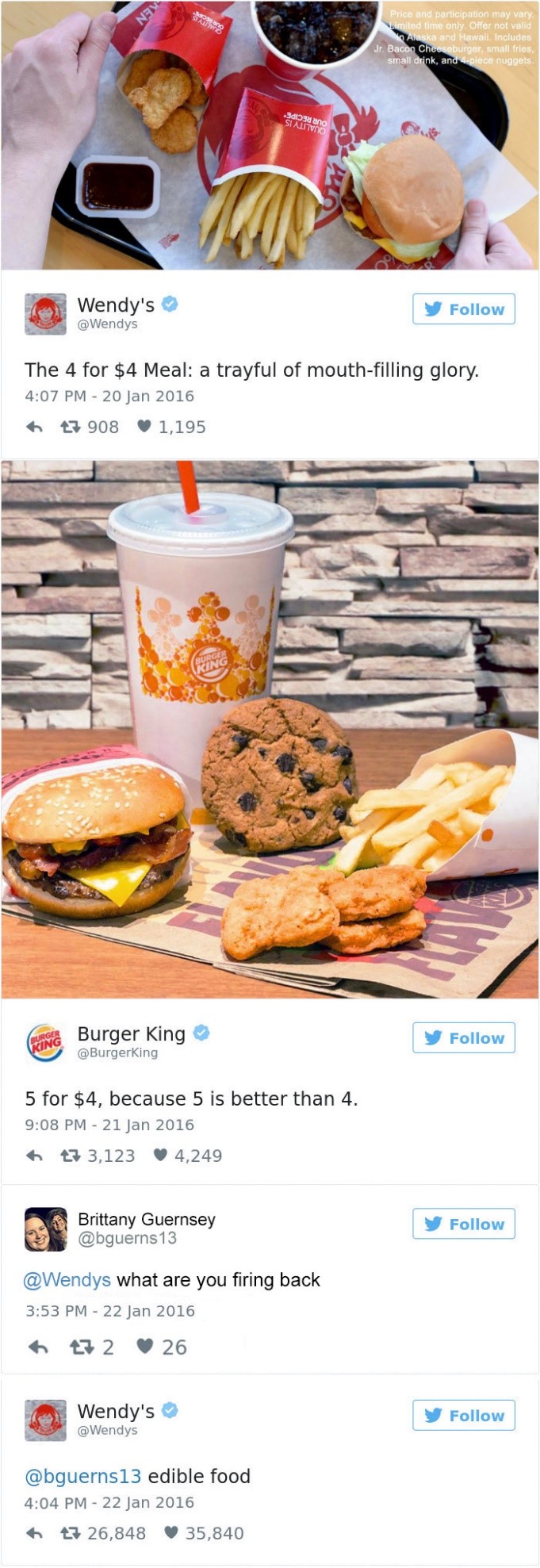Google Ads Competitor Bidding: How to Build a Winning Strategy
 As a marketing nerd, I love reading about Wendy’s tweets. Why? Because they are always bashing McDonald’s and other fast food chains (and they’re pretty good at it when they do).
As a marketing nerd, I love reading about Wendy’s tweets. Why? Because they are always bashing McDonald’s and other fast food chains (and they’re pretty good at it when they do).
Wendy’s has mastered using their competitors (and trolling) to get attention. Luckily, you don’t have to master trolling to use your competitors in your search ads.
Should You Bid On Competitor Keywords?
As with almost all questions in digital marketing, it depends. However, for many businesses, it makes sense to bid on your competitor keywords.
Higher Intent: The first advantage of bidding on your competitor keywords is you know your customer has some familiarity with your products or services, which could show purchase intent. Many generic keywords will be searched during the initial research phase of the customer journey, whereas searches that use a brand have already done some research and may be closer to purchasing. For example, when working with a diet company we used both generic “diet program” type keywords, along with competitor keywords. We found that people searching the more generic diet keywords were looking for free options to do themselves; whereas people searching for their competitors were interested in finding a service to help them with their diet.
Build Brand Awareness: Another advantage of bidding on competitor keywords is you can use their brand awareness to promote yourself. This is especially helpful when you are new to the market or are a small player in the market. For example, the diet company mentioned above was a company with low brand awareness and was expanding their program to a new market. By bidding on their well-known national competitors, we were able to leverage the years of branding efforts they had done and show our ad to their potential customers.
How to Bid on Competitors Well
While there are advantages to bidding on competitor keywords, you still need a strong strategy in order to take advantage of these searches. You can do this by matching your competitor products to your products, focusing on your unique selling proposition, and by building out negative keyword lists.
Match your competitor products and queries to your products: While you could just build a competitor campaign with only the name of your competitors, taking the time to find specific keywords and match them to your specific product offerings will greatly improve your performance. For example, if you sell vacuum cleaners, you could just bid on “Dyson” and show up when customers search for Dyson. However, if somebody searches for the “Dyson cyclone v10,” one of their cordless vacuums, you can specifically match that to your own cordless vacuums. This will make your ad more relevant, give you the opportunity to take the searcher to a more relevant landing page, and give the searcher an overall better experience.
Focus on Your Product’s Unique Selling Proposition: Why should the searcher switch to you? Remember, they are searching for your competitor, so they know the benefits of your competitor’s product or service. In order for your ads to be effective, you have to show the searcher the advantage of purchasing from you. In the vacuum example above, you can focus on and write your ad specific to what you do better than Dyson. Does your cordless vacuum have a longer battery life? Better price? Highlighting these advantages is a huge benefit for the searcher, and can make them more likely to consider your product.
Negative Keywords: Finally, when building competitor campaigns, you need a robust negative keyword list. Some common examples of negative keywords I add to competitor campaigns are job-related, customer service or support related, any product or service you do not offer, and any news-related keywords. Adding these as negative keywords will help you control spend on your competitor campaigns, which can make these campaigns more profitable.
When Not to Bid on Competitors
While I generally encourage testing competitor keywords, the following are instances I would not recommend bidding on competitor keywords:
-
- Low budget: If you have a low budget, it is usually better to focus on other keywords or digital marketing tactics first. There are exceptions to this. For example, for the diet program mentioned above, the competitor campaigns were the best-performing ones. But in most cases, other campaigns will be a higher priority or produce better results.
-
- No ability to get customers to switch: If there is little possibility for a customer to switch from your competitor to you, you may not want to bid on competitor keywords. If your product category has high brand loyalty that customers are unlikely to switch from (like laundry detergent or toothpaste), is highly complex to switch, or has high switching costs, you should focus your budget on other tactics before bidding on competitor keywords.
-
- Lead Quality: If you are running lead-gen campaigns, it will be important to monitor the lead quality from your competitor campaigns. With one lead-gen client we work with, some of their competitors have the same MQL rate as their generic campaigns, with other competitors generating almost no qualified leads. I still recommend testing competitor campaigns but advise following up to make sure the results you are driving are the correct ones for your business.
In conclusion, in a world full of food chains and restaurants bidding on “restaurants near me” or “best burgers in Milwaukee,” be a Wendy’s. Go ahead, use your competitor to your advantage, and find ways to beat them at it.
*Note from our founder, Jordon Meyer: At Granular, we do not bid on our competitors (other agencies) due to our own beliefs on brand bidding as an agency. While we do have clients that use this tactic, and it gains them new clients and sales. Granular will never try and build our brand on the coattails of other agencies. If we accidentally run an ad that enters the auction for a competitor (RSA or RDSA campaign) we quickly add that brand as a negative keyword once we see it happen. We take pride in forging our own path and building demand for our brand organically.
